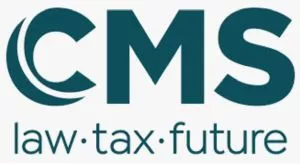Introduction
On February 26, 2025, the European Commission (the Commission) published its "Omnibus package", a set of proposals to simplify inter alia European Union (EU) rules on sustainability reporting and sustainability due diligence (the Omnibus Package).
These proposals intervene as the Commission has recently reaffirmed its ambition to boost the EU's competitiveness and make its economy more prosperous. In that regard, the Commission states that the EU needs to foster a favourable business environment by reducing regulatory burdens.
While the Omnibus Package suggests a wide range of changes to (i) the Corporate Sustainability Reporting Directive1 (the CSRD), including the European Sustainability Reporting Standards (the ESRS), (ii) the EU Taxonomy Regulation,2 including the Taxonomy Disclosures Delegated Act,3 and the Taxonomy Climate4 and Environmental Delegated Acts5 (collectively referred to as the EU Taxonomy), (iii) the Corporate Due Diligence Directive6 (the CSDDD) as well as (iv) the carbon border adjustment mechanism (the CBAM), this publication will focus on the key proposals that are likely to have an impact on Luxembourg investment funds managers (IFMs).
I. Key changes to the CSRD
The CSRD entered into force on 5 January 2023 with the aim of modernising and strengthening the rules on the social and environmental information that companies must report.
Companies subject to the CSRD are required to prepare and publish annually, a sustainability report in accordance with the ESRS, which are a set of standards covering the full range of environmental, social, and governance issues, including climate change, biodiversity and human rights.7 The Omnibus Package, if adopted, will introduce the changes below.
i. Postponement of the reporting requirements and revision of the scope
Under the current framework, IFMs that qualify as large undertakings are required to report in 2026 for their 2025 financial year (Phase 2 Undertakings). Additionally, small to medium-sized undertakings, with securities listed on a EU regulated market, and which are not micro-undertakings, are required to report in 2027 for their 2026 financial year (Phase 3 Undertakings").
With the Omnibus Package, the Commission proposes postponing by two years, the entry into application of the reporting requirements for both Phase 2 Undertakings and Phase 3 Undertakings, with the main objective to give time to the European Parliament and Council to agree to the substantive changes to the CSRD proposed by the Commission, described below.
In addition, to achieve harmonisation with the CSDDD and focus the sustainability reporting obligations on the largest companies which are more likely to have the biggest impacts on people and the environment, the Commission proposes to significantly reduce the scope of reporting undertakings under the CSRD, to undertakings with more than 1,000 employees and either (i) a turnover above EUR 50 million or (ii) a balance sheet total above EUR 25 million.
As a result, 80% of companies would be removed from the scope of the CSRD, including a considerable number of IFMs in Luxembourg which would not meet the 1,000 employees' threshold.
ii. Revision of data points and introduction of a voluntary reporting standard
As part of the objective to simplify reporting requirement, the Omnibus Package particularly aims to reduce the number of data points of the existing ESRS, clarify provisions deemed unclear and improve consistency with other pieces of legislation, including inter alia, the sustainable finance framework.
The Commission encourages the entities which would not, or no longer, be in scope of the revised CSRD, to report on a voluntary basis using either (i) the revised ESRS or (ii) a voluntary reporting standard intended to be developed. Such voluntary reporting standards would act as a cap by limiting the information that companies or banks falling into the scope of the CSRD can request from companies in their value chains that have fewer than 1,000 employees.
iii. What does it mean for Luxembourg IFMs?
As a result, IFMs that fall within the definition of "large undertaking" in-scope of CSRD today are invited to keep a close eye on the evolution of the Omnibus Package, especially on (i) the date of the first reporting obligation and (ii) whether they would no longer fall within the scope of CSRD.
IFMs that have already invested efforts into their compliance with CSRD are encouraged to consider the voluntary reporting in line with the upcoming voluntary reporting standards that would be introduced following the adoption of the Omnibus Package.
Finally, it is to be noted that, compared to other EU Member States, CSRD has not yet been implemented in Luxembourg law so the enforceability of CSRD to Luxembourg entities would likely remain on a voluntary basis until more clarity has been given with the outcome of the Omnibus Package.
II. Key changes to the EU Taxonomy
The Taxonomy Regulation came into force on 12 July 2020, establishing a classification system which defines criteria for economic activities that are aligned with a net-zero trajectory by 2050, as well as broader environmental goals other than climate. In this context, the EU Taxonomy sets out a list of environmentally sustainable activities by defining technical screening criteria for each environmental objective. The Omnibus Package, if adopted, will introduce the changes below.
i. Introduction of a financial materiality threshold and "opt-in" regime
The Commission plans to introduce an exemption for companies from assessing Taxonomy-eligibility and alignment of their economic activities that are not financially material for their business, leading to an almost 70% reduction in data points.
In addition, the Omnibus Package proposes an "opt in" taxonomy reporting requirement for companies with less than 1,000 employees, a net turnover of less than 450 million and which does not claim its economic activities align or partially align with the EU Taxonomy.
ii. What does it mean for Luxembourg IFMs?
In this context, the introduction of the materiality threshold would permit IFMs not to assess 10% of their assets financing while focusing the assessment on the material assets.
The reduction of companies that are subject to the mandatory reporting would likely reduce the anticipated amount of accurate data in the market that would be useful to the IFMs in their investment decisions.
III. Key changes to the CSDDD
CSDDD entered into force on 25 July 2024 with the aim of fostering sustainable and responsible corporate behaviour in companies' operations and across their global value chains.
While the Omnibus Package proposes numerous changes to CSDDD, namely linked to the scope, the date of application, the limitation of set of information and removal of strict accountability rules, the proposed change that is mostly relevant for IFMs is the removal of the review clause for financial services.
Article 36(1) of the CSDDD currently requires the Commission to submit a report to the European Parliament and the Council by 26 July 2026 on the need for additional sustainability due diligence requirements tailored to regulated financial undertakings with respect to the provision of financial services.
As the Commission proposes to delete this clause, it is likely that IFMs will not be subject to additional sustainability due diligence requirements.
What's next?
To date, the Omnibus Package remains a set of proposals and still needs to be reviewed and adopted by the European Parliament and the Council.
It is therefore recommended that IFMs do not take any action as long as the sustainability reporting and due diligence frameworks have not been officially implemented.
Footnotes
1 Directive (EU) 2022/2464 of the European Parliament and of the Council of 14 December 2022 amending Regulation (EU) No 537/2014, Directive 2004/109/EC, Directive 2006/43/EC and Directive 2013/34/EU, as regards corporate sustainability reporting
2 Regulation (EU) 2020/852 of the European Parliament and of the Council of 18 June 2020 on the establishment of a framework to facilitate sustainable investment, and amending Regulation (EU) 2019/2088
3 Commission Delegated Regulation (EU) 2021/2178 of 6 July 2021 supplementing Regulation (EU) 2020/852 of the European Parliament and of the Council by specifying the content and presentation of information to be disclosed by undertakings subject to Articles 19a or 29a of Directive 2013/34/EU concerning environmentally sustainable economic activities, and specifying the methodology to comply with that disclosure obligation
4 Commission Delegated Regulation (EU) 2021/2139 of 4 June 2021 supplementing Regulation (EU) 2020/852 of the European Parliament and of the Council by establishing the technical screening criteria for determining the conditions under which an economic activity qualifies as contributing substantially to climate change mitigation or climate change adaptation and for determining whether that economic activity causes no significant harm to any of the other environmental objectives
5 Commission Delegated Regulation (EU) 2023/2486 of 27 June 2023 supplementing Regulation (EU) 2020/852 of the European Parliament and of the Council by establishing the technical screening criteria for determining the conditions under which an economic activity qualifies as contributing substantially to the sustainable use and protection of water and marine resources, to the transition to a circular economy, to pollution prevention and control, or to the protection and restoration of biodiversity and ecosystems and for determining whether that economic activity causes no significant harm to any of the other environmental objectives and amending Commission Delegated Regulation (EU) 2021/2178 as regards specific public disclosures for those economic activities
6 Directive (EU) 2024/1760 of the European Parliament and of the Council of 13 June 2024 on corporate sustainability due diligence and amending Directive (EU) 2019/1937 and Regulation (EU) 2023/2859
7 For more information on keys elements of the CSRD with respect to Luxembourg AIFMs, please read our publication here.
The content of this article is intended to provide a general guide to the subject matter. Specialist advice should be sought about your specific circumstances.




